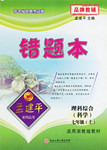题目内容
We do not know how astronauts can ________ when they spend months in space without the protection of the atmosphere.
A. get off B. get up C. get along D. get in
C

 孟建平错题本系列答案
孟建平错题本系列答案 超能学典应用题题卡系列答案
超能学典应用题题卡系列答案| Gallery Policies for Visitors to National Gallery of Art, Washington | |
| Visitors must present all carried items for inspection upon entry. After inspection, all bags, backpacks, umbrellas, parcels, and other things as determined by security officers must left at the checkrooms, free of charge, close to each entrance. All oversized bags, backpacks and luggage must be left at the checkrooms near the 4th Street entrance of either the East or West Building. These items will have to be x-rayed before being accepted items of value, such as laptop computers, cameras, and fur coats, may not be left in the checkrooms but may be carried into the galleries. We regret that we do not have enough space for visitor items larger than 17×26 inches into the Gallery or its checkrooms. Additional security procedures and checks may be taken according to the decision of the Gallery. | For the safety of the artworks and other visitors, nothing may be carried on a visitor’s back. Soft front baby carriers are allowed, but children may not be carried on shoulders or in a child carrier worn on the back. Pushchairs are available free of charge near each checkroom. Smoking is prohibited. Food and drink are not permitted outside the food service areas. Unopened bottled water may be carried only in a visitor’s bag. Cell phones may not be used in the galleries. Animals, other than service animals, are not permitted in the Gallery. Skateboarding is prohibited. Picture-taking (including video for personal use is permitted except in special exhibitions and where specifically prohibited. Tripods (三角架) are not allowed. Please do not touch the works of art. |
When people come to visit the Gallery, they should ____________.
A. leave all their carried items at the checkrooms
B. have all their carried items x-rayed at the entrance
C. take all their carried items with them without inspection
D. have all their carried items inspected at the entrance
What does the Gallery feel sorry for?
A. Visitors have to keep their valuable items in the checkrooms.
B. The size of visitor items allowed into the Gallery is limited.
C. It cannot keep oversized visitor items due to limited space.
D. Visitor items over 17×26 inches must go through additional checks.
Parents with small children visiting the Gallery _____________.
A. can carry their children in soft front child carriers
B. can carry their children on their shoulders
C. can carry their children in child carriers worn on the back
D. ought to pay if they want to use pushchairs for their children
Visiting photographers should make sure that __________.
A. pictures and videos are allowed for personal use anywhere in the Gallery
B. pictures and videos can be taken in some places for personal use
C. picture-taking and videoing are totally forbidden in the Gallery
D. tripods are allowed except in some special exhibitions
It is true that good writers rewrite and rewrite and then rewrite some more. But in order to work up the desire to rewrite, it is important to learn to like what you write at the early stage.
I am surprised at the number of famous writers I know who say that they so dislike reading their own writing later that they even hate to look over the publishers’ opinions. One reason we may dislike reading our own work is that we’re often disappointed that the rich ideas in our minds seem very thin and plain when first written down. Jerry Fodor and Steven Pinker suggest that this fact may be a result of how our minds work.
Different from popular belief, we do not usually think in the works and sentences of ordinary language but in symbols for ideas (known as ‘mentalese’ ), and writing our ideas down is an act of translation from that symbolic language. But while mentalese contains our thoughts in the form of a complex tapestry (织锦),writing can only be composed one thread at a time. Therefore it should not be surprising that our first attempt at expressing ideas should look so simple. It is only by repeatedly rewriting that we produce new threads and connect them to get closer to the ideas formed in our minds.
When people write as if some strict critics (批评家) are looking over their shoulder, they are so worried about what this critic might say that they get stuck before they even start. Peter Elbow makes an excellent suggestion to deal with this problem. When writing we should have two different minds. At the first stage, we should see every idea, as well as the words we use to express it, as wonderful and worth putting down. It is only during rewrites that we should examine what we excitedly wrote in the first stage and check for weaknesses.
1.What do we learn from the text about those famous writers?
|
A.They often regret writing poor works. |
|
B.Some of them write surprisingly much. |
|
C.Many of them hate reading their own works. |
|
D.They are happy to review the publishers’ opinions. |
2.What do people generally believe about the way human minds work?
|
A.People think in words and sentences. |
|
B.Human ideas are translated into symbols. |
|
C.People think by connecting threads of ideas. |
|
D.Human thoughts are expressed through pictures. |
3.What can we conclude from the text?
|
A.Most people believe we think in symbols. |
|
B.Loving our own writing is scientifically reasonable. |
|
C.The writers and critics can never reach an agreement. |
|
D.Thinking and writing are different stages of mind at work. |
Now, we know that if we do not get enough vitamins, we are at risk of developing a number of diseases. As a result, vitamin supplements(补品),though expensive, are popular with people who worry that they are not getting enough vitamins from the foods they eat. But contrary to what many people think, medical experts have found little evidence that most supplements do anything to improve health or protect against disease.
In fact, medical experts warn that taking too many of some vitamins can be harmful. For example, too much vitamin E can cause bleeding. People should discuss what vitamins they take with their doctors, as some vitamins can produce harmful side effects when mixed with medicines.
Experts, however, do say that sometimes vitamins can help prevent disease. People who know they lack a particular vitamin should take vitamin supplements. Some older adults, for example, may not have enough vitamin B-twelve. This is because, as people get older, their body loses its ability to take it from foods. Also, people who spend much time inside may need some extra vitamin D as the skin makes this vitamin from sunlight.
Different vitamins are found in different foods. Vitamin A is found in fish liver oil. It also is in the yellow part of eggs. Sweet potatoes, carrots and other darkly colored fruits and vegetables contain substances that the body can change into vitamin A. Vitamin B-twelve is found in green leafy vegetables and other foods, like fruits. Vitamin K can be found in pork products.
In fact, for most people, a balanced diet can ensure enough of the vitamins our bodies need. So, it is important for us to eat a mixture of foods every day to ensure that we get enough vitamins our bodies need.
1.Vitamin supplements are popular with people because ________.
|
A.people mistakenly think that they are good for their health |
|
B.they contain more vitamins than the foods people eat |
|
C.food does not provide enough vitamins people need |
|
D.people fear that a lack of vitamins will lead to disease |
2.From the passage, we can learn that medical experts advise people _________.
|
A.never to take any vitamin supplements |
|
B.to depend only on food for their vitamins |
|
C.not to take any vitamins together with medicines |
|
D.to consult doctors before taking vitamin supplements |
3.For people who lack Vitamin B-twelve, they can eat more from _______.
A. sweet potatoes B. pork products C. green leafy vegetables D. eggs
42. What would be the best title of the passage?
A. Getting enough vitamins through a balanced diet.
B. Vitamin supplements do harm to our health.
C. Vitamins are important to our health.
D. Lacking vitamins can cause many diseases.